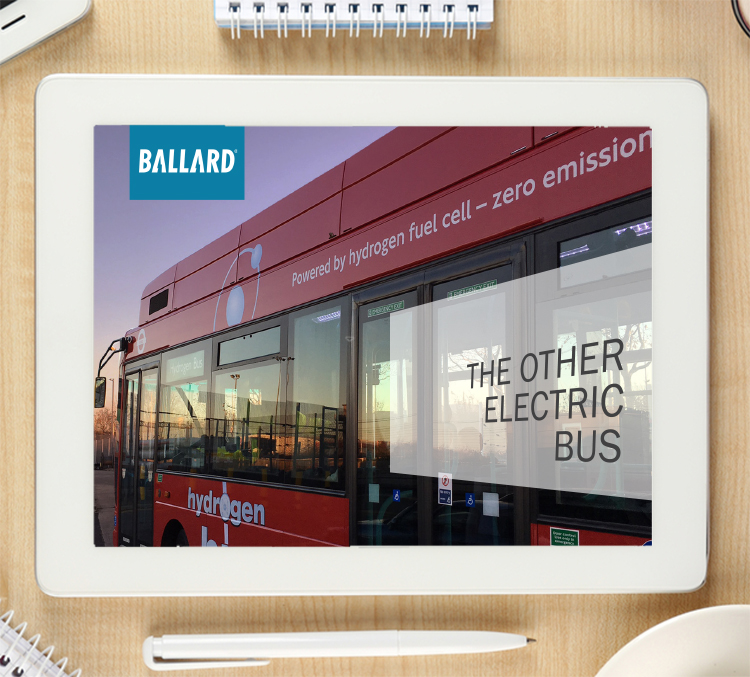Ballard Power Systems: a fuel cell bus is an electric bus
- Like
- Digg
- Del
- Tumblr
- VKontakte
- Buffer
- Love This
- Odnoklassniki
- Meneame
- Blogger
- Amazon
- Yahoo Mail
- Gmail
- AOL
- Newsvine
- HackerNews
- Evernote
- MySpace
- Mail.ru
- Viadeo
- Line
- Comments
- Yummly
- SMS
- Viber
- Telegram
- Subscribe
- Skype
- Facebook Messenger
- Kakao
- LiveJournal
- Yammer
- Edgar
- Fintel
- Mix
- Instapaper
- Copy Link
Posted: 6 June 2019 | Ballard Power Systems | No comments yet
Europe has long been a leader in recognising the role of hydrogen in the decarbonisation of transportation and the resulting socio-economic and environmental benefits.
Recently, an ambitious target to have 45,000 zero-emission fuel cell powered buses and trucks on the road by 2030 was set in the Hydrogen Roadmap Europe, published by the Fuel Cells and Hydrogen Joint Undertaking (FCH JU).
There are currently more than 50 FCH JU-supported fuel cell buses on the road around Europe – a number that will rise to close to 400 with the FCH’s most recent projects, JIVE and JIVE2. It’s well proven that fuel cell electric buses deliver the required mix of zero-emissions at the tailpipe, fast refuelling speed and extended range. The buses can operate with the same flexibility as a diesel bus without compromising the productivity of public transport.
Today, the purchase price of a fuel cell bus is approximately €50,000 or less. Projects are underway that consolidate high-volume purchases of a single bus design for deployment at numerous transit agencies throughout Europe. Such projects are a significant stepping stone in reducing the total cost of ownership of hydrogen buses towards a level close to fossil-fuelled buses and driving even more widespread adoption.
Related content from this organisation
Related topics
Air Quality, Alternative Power, Sustainable Urban Transport
Related modes
Bus & Coach
Related organisations
Ballard Power Systems









